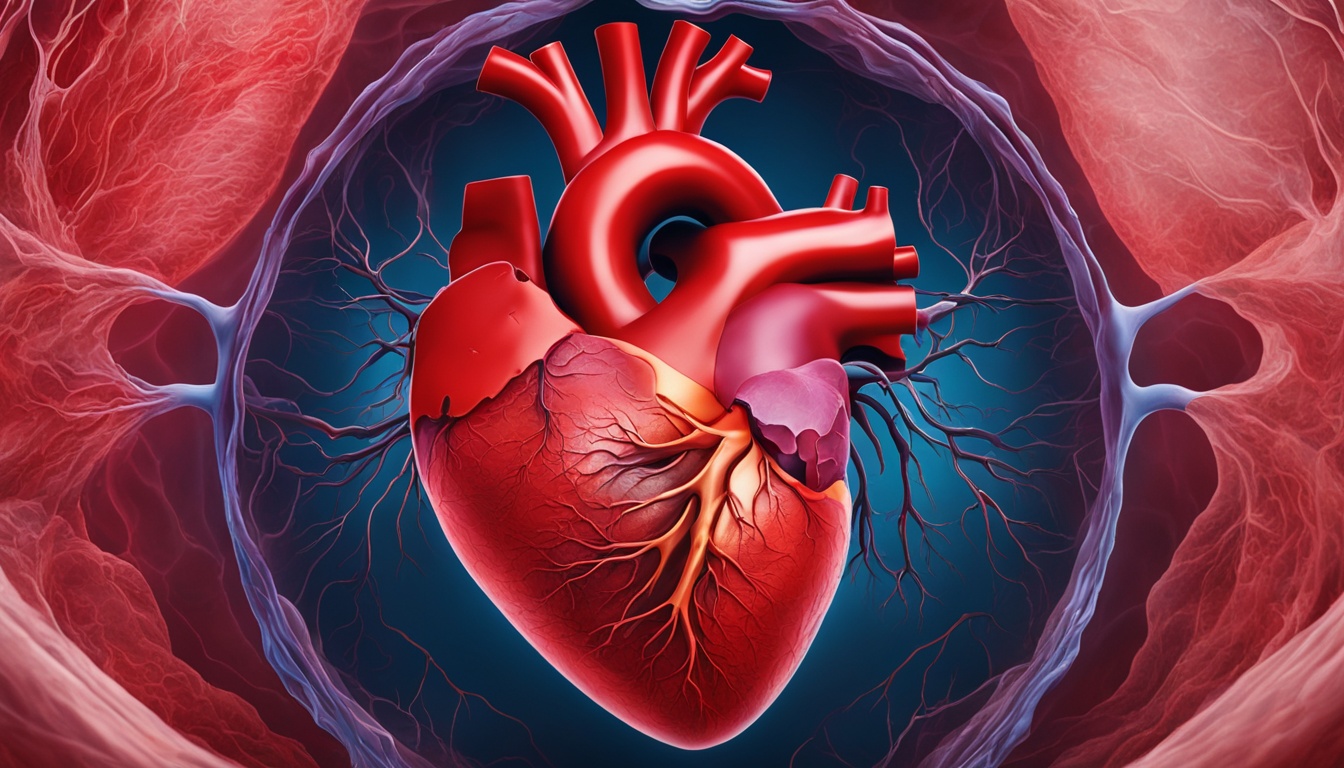Cardiomegaly is when the heart becomes bigger and weaker. This leads to symptoms that can lower life quality. It’s crucial to know the causes, symptoms, and treatments for managing enlarged heart disease well.
Common causes of an enlarged heart are:
- High blood pressure
- Coronary artery disease
- Previous heart attacks
- Valve problems
As the heart grows, it struggles to pump blood as it should. This causes symptoms like:
- Shortness of breath
- Fatigue
- Swelling in the legs and ankles
- Rapid or irregular heartbeat
- Reduced ability to exercise
If you feel any of these, see a doctor right away. Getting diagnosed early can manage and stop complications.
Currently, there’s no cure for this disease. Yet, stem cell therapy offers hope. It can repair the heart muscle and boost heart function. This might make life better for those with an enlarged heart.
Key Takeaways:
- Cardiomegaly makes the heart bigger and weaker.
- It’s caused by high blood pressure, heart diseases, and valve issues.
- Symptoms include breathlessness, tiredness, and a swollen body.
- Quick diagnosis and medical care are essential.
- Stem cell therapy shows promise in improving heart health and life quality.
Causes and Risk Factors of Enlarged Heart
An enlarged heart, known as cardiomegaly, has many causes. These factors weaken or damage the heart muscle. It’s vital to know these causes and risk factors to treat the condition well.
Causes of Enlarged Heart
Coronary artery disease is a key cause. It happens when arteries get blocked with fatty deposits. This blocks blood flow, leading to heart attacks and a bigger heart. High blood pressure is also important. It makes the heart work harder and grow bigger to protect itself.
Risk Factors for Enlarged Heart
Certain things can raise your chance of an enlarged heart. Getting older is a big one. As you age, your heart’s muscles can get weaker. Drinking alcohol and smoking harms your heart, maybe leading to it getting larger. Then, conditions like diabetes and sleep apnea can also play a part in cardiomegaly.
Other causes include heart valve disease and issues with the heart’s rhythm. These can happen due to heart muscle inflammation or heart defects from birth. Any of these can make the heart enlarge.
To prevent an enlarged heart, it’s key to know what causes it. By tackling these causes and risk factors, you can lower your heart health risks.
| Common Causes of Enlarged Heart | Additional Risk Factors |
|---|---|
| Coronary artery disease | Age |
| High blood pressure | Alcohol use |
| Heart valve disease | Smoking |
| Inflammation of the heart muscle | Diabetes |
| Congenital heart defects | Sleep apnea |
| Irregular heart rhythms |
Symptoms and Diagnosis of Enlarged Heart
The symptoms of an enlarged heart can change based on how bad the condition is. You might feel short of breath, tired, or weak. You could also notice swelling in your legs, ankles, and feet, plus a rapid or irregular heartbeat. Other signs include not being able to exercise like before, wheezing, and a cough. You might also see your belly swell, gain weight suddenly, feel sick, or find it hard to stay focused. If you feel any of these, it’s crucial to see a doctor.
Doctors use several steps to diagnose an enlarged heart. They will do a physical exam and check your medical history. You’ll also get imaging tests like an echocardiogram, an electrocardiogram, and chest X-rays. Sometimes, more tests are needed to find the exact cause.
Diagnosis of Enlarged Heart
| Diagnostic Method | Description |
|---|---|
| Physical Examination | A doctor will listen to your heart and lungs, checking for signs of an enlarged heart, such as abnormal heart sounds or fluid in the lungs. |
| Medical History Review | Your doctor will ask you about your symptoms, medical history, and any risk factors or underlying conditions that may contribute to an enlarged heart. |
| Echocardiogram | This imaging test uses sound waves to create a detailed picture of your heart, allowing your doctor to evaluate its size, shape, and function. |
| Electrocardiogram | This non-invasive test measures the electrical activity of your heart, helping to identify any abnormal heart rhythms or other electrical abnormalities. |
| Chest X-rays | An X-ray of your chest can reveal the size of your heart and any indications of fluid buildup or other abnormalities. |
| Additional Tests | In some cases, additional tests may be necessary to determine the underlying cause of the enlarged heart, such as a cardiac MRI, stress tests, genetic testing, or blood tests for infectious or autoimmune diseases. |
Stem Cell Therapy for Enlarged Heart
Stem cell therapy is a hopeful treatment for enlarged heart disease. Stem cells can repair the heart’s damaged muscle. They can also make the heart work better and reduce swelling.
These abilities bring new hope for patients. Even though it’s not a cure, stem cell therapy can help a lot. For people who don’t do well with usual treatments, this could be an option. Research in stem cell therapy for the enlarged heart is flourishing. It promises better care for heart patients in the future.
Researchers are looking into how stem cell treatments could make a big change. They might make a real difference in how we manage enlarged heart disease. More studies and tests are needed to grasp its full potential. But, stem cell therapy could be a game-changer for those living with this disease.

